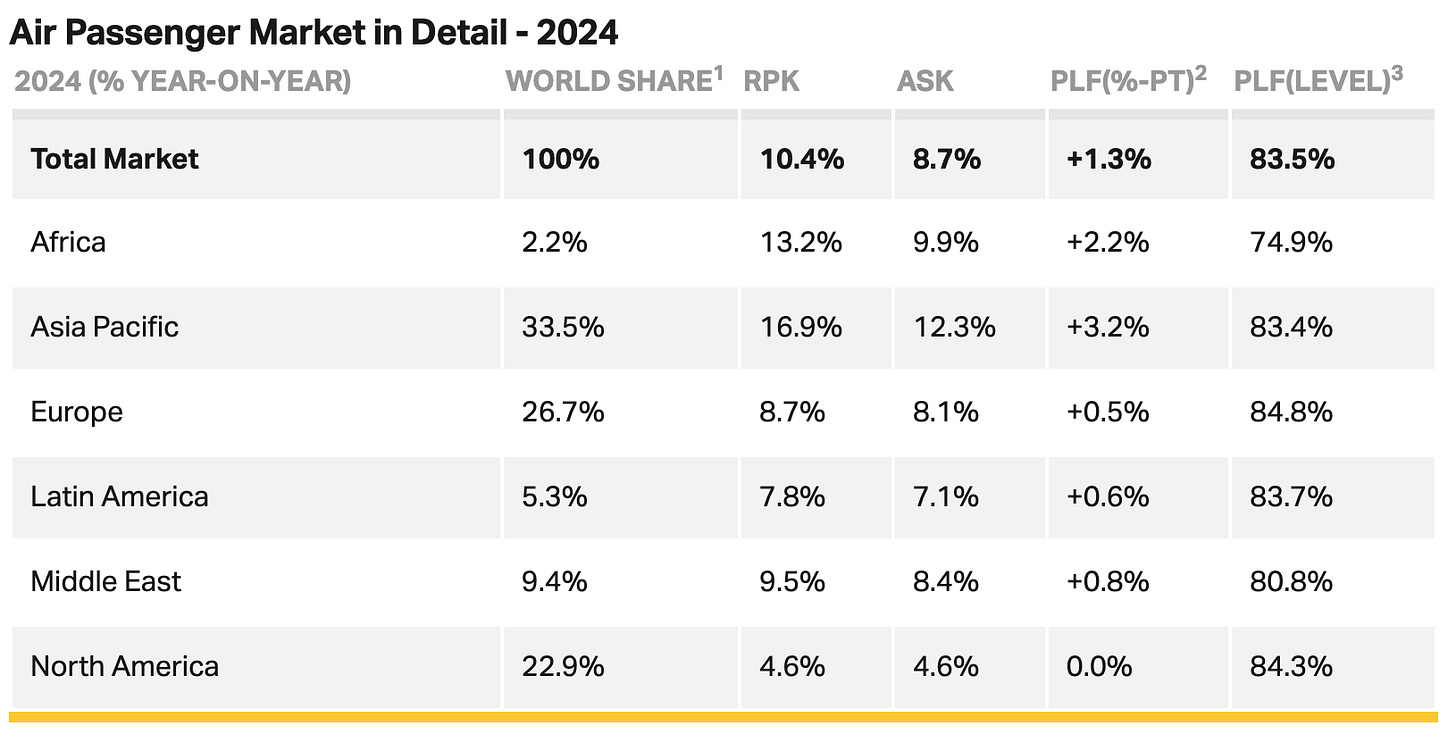#Sustainability20:Canada unveils Direct Air Capture and Storage offset protocol & more
Weekly Roundup - 31/01/25
Each Friday, we publish a round-up of the 20 most important stories on sustainable aviation. You can see previous editions of #Sustainability20 here.
Industry Updates
Canada is developing a protocol for Direct Air Carbon Capture and Storage (DACCS) to generate federal offset credits, aiming to boost investment in carbon removal technologies and meet net-zero targets by 2050.
IATA reported record-high air travel demand in 2024, with a 10.4% rise in passenger traffic. Airlines face challenges in scaling sustainable aviation fuel (SAF) to meet net-zero goals by 2050.
Emirates’ Sir Tim Clark expressed doubts about achieving net-zero aviation by 2050, citing the need for trillions in investment and slow industry innovation, despite progress in fuel-efficient engine technology.
Heathrow’s proposed third runway faces criticism for increasing emissions by seven million tonnes annually, with environmental groups calling it “catastrophic” and incompatible with UK climate targets.
Airbus paused its CityAirbus NextGen eVTOL project due to battery limitations, adding to challenges in the advanced air mobility sector, which has seen financial struggles among key players like Lilium and Volocopter.
CLIMATE WATCH: How US states are leading the climate fight – despite Trump’s rollbacks - The Guardian
US states are stepping up climate action as the Trump administration rolls back federal environmental policies, with New York and California leading legal challenges and renewable energy initiatives.
Infrastructure and operational efficiencies
Long Beach Airport diverted 35 tons of organic waste through a food scrap recycling program, supporting California’s sustainability goals and reducing landfill contributions since its launch in 2021.
Brussels Airport launched a pilot project to supply green energy from its solar panels to 100 local households, testing small-scale renewable energy distribution as part of its net-zero emissions strategy.
Sustainable Aviation Fuel (SAF)
Haffner Energy, LanzaTech, and LanzaJet are collaborating on biomass-to-SAF projects, combining expertise to produce SAF from waste feedstocks and advance decarbonisation in aviation.
Cosmo Energy will supply Japan Airlines and All Nippon Airways with domestically produced SAF from used cooking oil, marking Japan’s first large-scale SAF production.
Startup Lydian is developing cost-effective e-fuels for aviation using CO2 and hydrogen, leveraging renewable energy price fluctuations to produce sustainable jet fuel with lower operational costs.
Budapest Airport achieved ISCC EU certification for SAF, enabling it to meet EU regulations requiring 2% SAF usage from 2025, supporting decarbonisation efforts in aviation.
Air France-KLM is exploring SAF cooperation with Portuguese partners ahead of TAP’s privatisation, aiming to leverage Portugal’s renewable resources for SAF production.
New technology: Electric and Hydrogen
China’s Liaoning Ruixiang RX1E, the country’s first electric aircraft, marks a milestone in sustainable aviation, offering zero-emission flights for pilot training and recreational use with a 120 km range.
Boom Supersonic’s XB-1 demonstrator achieved its first supersonic flight, reaching Mach 1.122, a key step toward developing the Overture supersonic airliner with advanced carbon fibre and digital systems.
The EcoPulse hybrid-electric aircraft demonstrator completed a successful flight test campaign, validating distributed propulsion, high-voltage batteries, and noise reduction technologies for future sustainable aviation solutions.
South Korean start-up Airbility raised $1.7 million to develop hybrid-electric VTOL aircraft, aiming to launch a two-seat model by 2028 for applications like surveillance and search and rescue.
Utah’s 47G partnered with BETA Technologies to introduce electric aircraft and charging infrastructure, supporting sustainable transportation ahead of the 2034 Winter Olympics and boosting the state’s AAM industry.
Pratt & Whitney’s HySIITE hydrogen engine research shows a 35% efficiency boost and 99.3% NOx reduction, advancing liquid hydrogen propulsion for commercial aviation, though infrastructure challenges remain.
Port Houston secured a $25 million grant to develop a hydrogen refuelling station, supporting decarbonisation of heavy-duty trucks and aligning with its net-zero emissions target by 2050.
Vertical Aerospace raised $90 million to fund development of its VX4 electric air taxi, aiming for certification by 2028 and accelerating testing and certification efforts.







